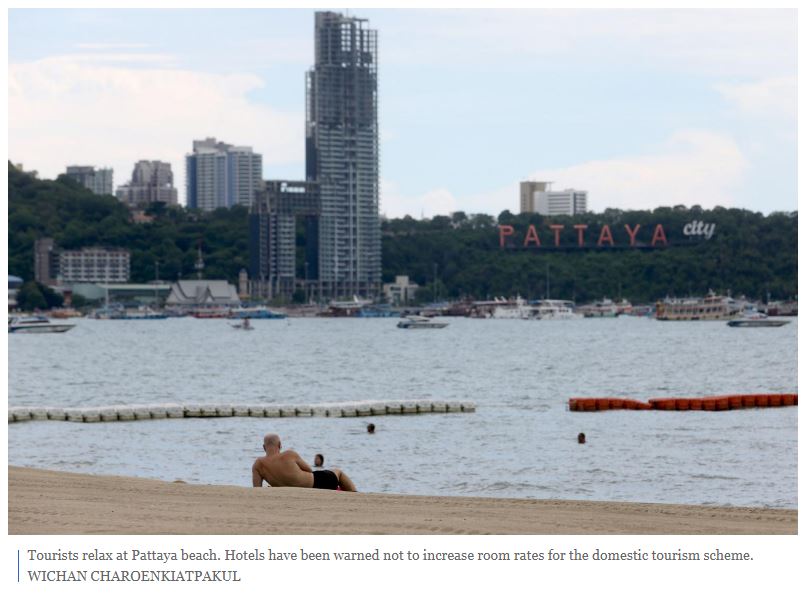Thailand: Tepid response to travel scheme
The domestic tourism stimulus scheme has registered a slow response from locals as limited supply and price gouging marked the first two days of booking, prompting the government to allowed non-licensed hotels to join the scheme this week.
“It is too soon to say domestic tourism consumption is weaker because the ‘We travel together’ scheme just launched a few days ago,” said Phiphat Ratchakitprakarn, the tourism and sports minister.
Last week, he predicted most of 5 million nights of hotel accommodation would be redeemed within the first three days of the launch, but as of July 20, there are 87,960 booked transactions from 4.1 million total applications by Thais aged 18 or above who registered.
Mr Phiphat said the government will monitor hotel transactions closely for two weeks and will be ready to launch the second phase focusing on second-tier provinces and weekday booking, with even more attractive conditions.
He warned hoteliers that charge exorbitant rates will be banned from this scheme.
If they want to rejoin for the next phase, operators have to refund the money to tourists first.
Yuthasak Supasorn, governor of the Tourism Authority of Thailand, said today the loan screening committee may inform the cabinet about extending eligibility to hotels that don’t have licences.
This permission will increase supply and give tourists more choices.
Some 6,000 registered hotels joined the scheme, but the number of hotels in Thailand is much larger with at least 800,000 rooms operating legally and 1 million illegal rooms.
The government will loosen the restrictions to three groups: hotels in the process of obtaining a licence; hotels that have an expired licence for less than one year; and small or boutique hotels that do not fit the hotel licence criteria.
Mr Yuthasak said many hotels that used to rely on foreigners have closed and some of those that remain are unsure about switching to the domestic market.
“The forward bookings go through the end of this month and the public holiday in August, which should help hotels compared with the 0-5% occupancy during the outbreak,” he said.
Of the total bookings, beach hotels in eastern and western regions are the most popular choices among local tourists who booked one-night stays. Hotels in the South, particularly Krabi, are crowded for two nights and longer, said Mr Yuthasak.
To increase the occupancy rate past 27.9%, which is the break-even point for the hospitality business, the TAT wants to raise the frequency and length of stays.
Source: https://www.bangkokpost.com/business/1954719/tepid-response-to-travel-scheme


 English
English




